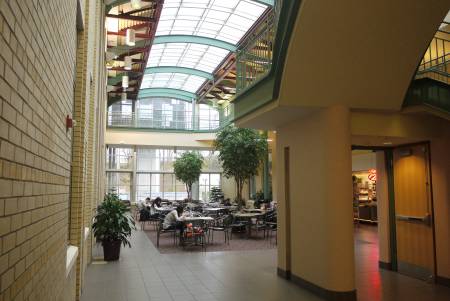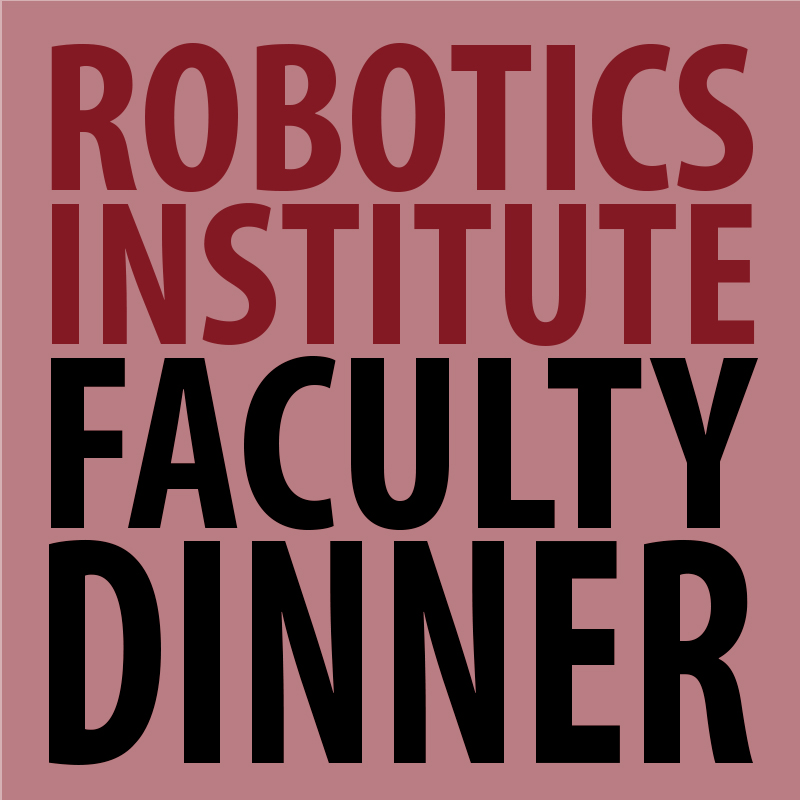MRSD Annual Poster Presentation
Nine RI MRSD program student teams will use posters, videos, and hardware to show their project work on truck crash avoidance, balance recovery, construction via UAVs, room tidying, crop disease detection, beach cleaning, temperature field sensing, UGV-UAV firefighting, and multirover moon pit modeling. Website: https://mrsd.ri.cmu.edu/project-examples/student-project-websites/spring-2019-fall-2019/
Adaptive Planning and Control of Wheeled Mobile Robots in Challenging Environments
Abstract: Over the last two decades, we have seen driverless cars conquer the Mojave desert, drive on mars and operate on our streets and warehouses. One of the most fundamental requirements of such robots is their ability to navigate their environment with minimal human oversight. As more robots graduate from the confines of laboratories to [...]
Towards photo-realistic face digitization from monocular videos
Abstract: Recent advances in face capture now enable digitizing high-quality 3D faces for the entertainment industry. Standardized digitization solutions, however, require tailor-made capture systems and extensive manual work, making them expensive and hard to deploy. With the advent of commodity sensors, new lightweight approaches that push the boundaries of human digitization have been introduced, slowly [...]
When to use CNNs for Inverse Problems in Vision
Abstract: Reconstruction tasks in computer vision aim fundamentally to recover an undetermined signal from a set of noisy measurements. Examples include super-resolution, image denoising, and non-rigid structure from motion\cite{Kong_2019}, all of which have seen recent advancements through deep learning. However, earlier work made extensive use of sparse signal reconstruction frameworks (e.g. convolutional sparse coding). While [...]
Toward telelocomotion: human sensorimotor control of contact-rich robot dynamics
Abstract: Human interaction with the physical world is increasingly mediated by automation -- planes assist pilots, cars assist drivers, and robots assist surgeons. Such semi-autonomous machines will eventually pervade our world, doing dull and dirty work, assisting the elderly and disabled, and responding to disasters. Recent results (e.g. from the DARPA Robotics Challenge) demonstrate that, [...]
2020 RI Faculty Dinner
Invitation with information will be emailed to invitees.
Formal Synthesis for Robots
Abstract: In this talk I will describe how formal methods such as synthesis – automatically creating a system from a formal specification – can be leveraged to design robots, explain and provide guarantees for their behavior, and even identify skills they might be missing. I will discuss the benefits and challenges of synthesis techniques and [...]
Reconstructing 3D Human Avatars from Monocular Images
Abstract: Statistical 3D human body models have helped us to better understand human shape and motion and already enabled exciting new applications. However, if we want to learn detailed, personalized, and clothed models of human shape, motion, and dynamics, we require new approaches that learn from ubiquitous data such as plain RGB-images and video. I [...]
Carnegie Mellon University
Learning Dense 3D Object Reconstruction without Geometric Supervision
Abstract: Geometric alignment across visual data has been the fundamental issue for effective and efficient computer vision algorithms. The established pixel correspondences between images indirectly infer the underlying 3D geometry, physically or semantically. While this builds the foundation of classical multi-view 3D reconstruction algorithms such as Structure from Motion (SfM) and Simultaneous Localization and Mapping [...]








